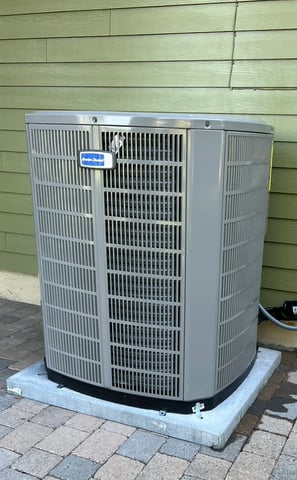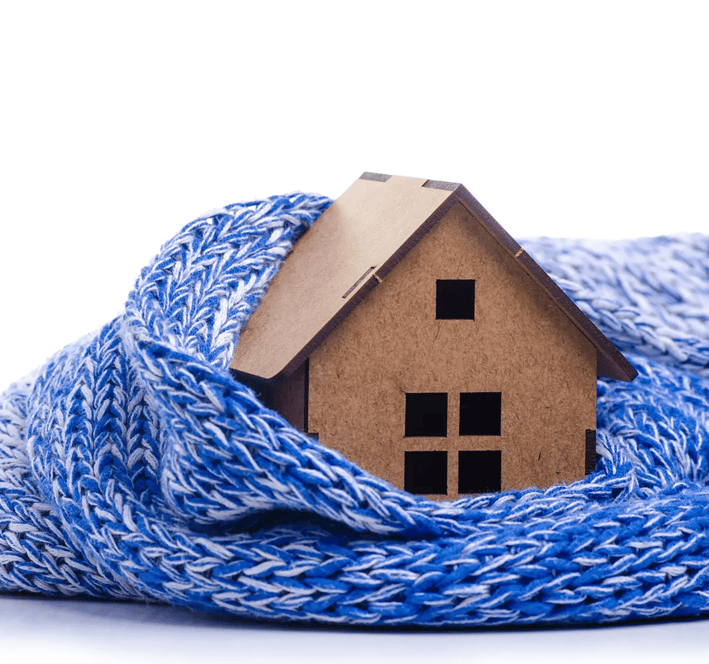Welcome to
DANBRIO Heating and Cooling
Danbrio is a family-owned HVAC company dedicated to providing top-quality heating and cooling services to families in the vibrant Seattle area. We prioritize customer satisfaction and quick response times.


Your Comfort is Our Priority
Trusted HVAC Solutions for You
With a full range of services, including HVAC maintenance, heating and cooling repair, and advanced air conditioning and gas furnace services, Danbrio is committed to delivering exceptional service at great prices.




Our Work Portfolio
Explore our HVAC services and satisfied customers in Seattle area.
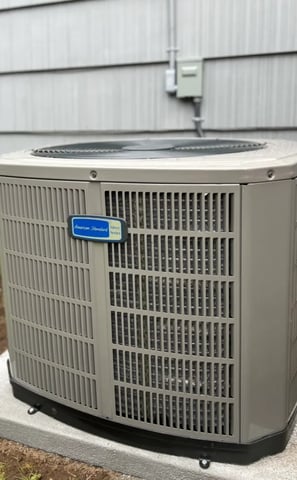

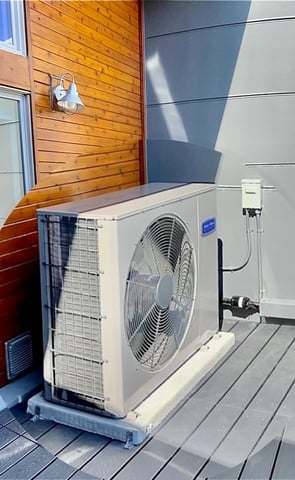

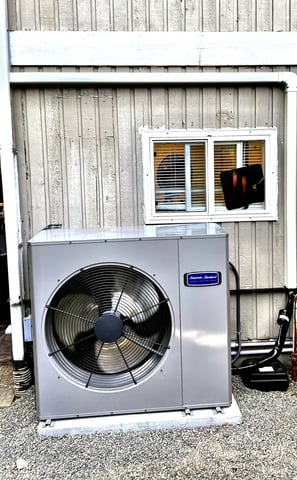

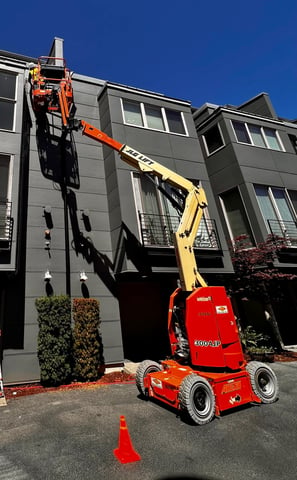

Frequently Asked Questions:
How do I know what type of heating system I need for my house?
This is one of the most common questions that we receive. Each home has a specific set of needs and not every heating equipment may be right for every home.
*Gas furnace system: is a heating system that uses natural gas or propane as fuel to generate heat for residential or commercial spaces. Gas furnaces are known for their efficiency and effectiveness in providing consistent heating.
*A heat pump is a device that transfers heat from one place to another, typically used for heating or cooling the space. It operates on the principle of moving heat against its natural flow. In heating mode, it extracts heat from the outside air and transfers it indoors. In cooling mode, it works like an air conditioner, removing heat from the indoor air and releasing it outside.
Heat pumps are energy-efficient because they move heat rather than generate it, making them a more sustainable option compared to traditional heating systems like furnaces. The heat pump system still requires an indoor gas or electric furnace for airflow distribution thru supply vents
*An air conditioner (AC) is a system designed to cool indoor spaces by removing heat and humidity from the air.
*An electric furnace is a type of heating system that uses electricity to generate heat.
Advantages of electric furnace:
Efficiency: Electric furnaces can be highly efficient, converting nearly all the electrical energy into heat.
Lower Initial Cost: They often have lower upfront costs compared to gas furnaces, as they don’t require venting for combustion gases.
Less Maintenance: Electric systems generally require less maintenance because they don’t have burners or flue systems.
Disadvantages:
Operating Costs: In areas where electricity is more expensive than gas, operating costs can be higher.
Heat Output: Electric furnaces can take longer to heat a space compared to gas furnaces, especially in very cold conditions.
Overall, electric furnaces are a reliable and efficient option for heating, particularly in regions where electricity is the primary energy source.
*A ductless system, often referred to as a ductless mini-split, is a type of heating and cooling system that doesn’t require ductwork to distribute air. Instead, it consists of an outdoor unit and one or more indoor units that directly cool or heat specific areas of a home.
Ductless systems often have higher SEER (Seasonal Energy Efficiency Ratio) ratings compared to traditional systems, which can lead to lower energy bills.
They allow for precise temperature control in different areas of the home, making it easier to manage comfort levels.
Ductless systems are easier to install than traditional systems since they don’t require extensive ductwork. A small hole is needed for the refrigerant lines.
Indoor units typically operate quietly, enhancing comfort without noise disturbances.
Without ducts, there’s less chance of dust and allergens circulating through the home.
What is the lifespan of HVAC ?
The lifespan of HVAC (Heating, Ventilation, and Air Conditioning) equipment can vary based on several factors, including the type of system, usage, maintenance, and environmental conditions.
Typical Lifespans
1. Furnaces:
Gas Furnaces: 15-20 years
Electric Furnaces: 15-25 years
Air Conditioners:
Central AC Units: 10-17 years
Heat Pumps:
Air Source Heat Pumps: 10-17 years
Factors Affecting Lifespan
Maintenance: Regular maintenance, such as filter changes, cleaning, and inspections, can significantly extend the life of HVAC equipment.
Usage: Systems that are heavily used (like in very hot or cold climates) may wear out faster.
Installation Quality: Proper installation is crucial; poor installation can lead to premature failure.
Environment: Equipment exposed to harsh conditions (like coastal areas with salt air) may have a shorter lifespan.
Signs of Aging HVAC Equipment
Decreased efficiency (higher energy bills)
Frequent repairs
Inconsistent temperatures
Unusual noises or odors
Age of the unit approaching typical lifespan limits
How often HVAC system should be serviced?
HVAC systems should generally be serviced at least once a year to ensure optimal performance and efficiency
Air Conditioners:
· Annual Maintenance: Schedule a professional inspection and tune-up before the cooling season, typically in spring.
Furnaces:
· Annual Maintenance: Have a professional check and service your furnace before the heating season, usually in fall.
Heat Pumps:
· Annual Maintenance: Similar to air conditioners and furnaces, service once a year, ideally in the spring or fall.
Neglecting regular HVAC service can lead to a variety of issues, which can affect both the efficiency of the system and the comfort of your home. Here are some potential consequences of not servicing your HVAC system regularly:
Reduced Efficiency
Increased Energy Bills: Dirty filters, coils, and other components make the system work harder, leading to higher energy costs.
Frequent Breakdowns
System Failures: Lack of maintenance can lead to mechanical failures and breakdowns, resulting in costly repairs or replacements.
Poor Air Quality
Dust and Allergens: A neglected system can accumulate dust, mold, and allergens, worsening indoor air quality and triggering health issues.
Inconsistent Temperatures
Comfort Issues: Without regular servicing, your HVAC system may struggle to maintain consistent temperatures, leading to hot or cold spots in your home.
Shortened Lifespan
Premature Replacement: Neglecting maintenance can significantly reduce the lifespan of your HVAC equipment, leading to earlier replacements.
Safety Hazards
Carbon Monoxide Risks: For gas-powered systems, lack of service can lead to dangerous leaks of carbon monoxide, which is a serious health risk.
Ductwork Issues
Clogging and Damage: Neglected ductwork can develop leaks or clogs, which further decreases efficiency and may require extensive repairs.
Can a new thermostat reduce energy bills?
Upgrading your thermostat can enhance the efficiency and comfort of your HVAC system
Manual Thermostats: Basic models that require manual adjustments for temperature settings.
Programmable Thermostats: Allow you to set different temperatures for various times of the day or week, helping to save energy.
Smart Thermostats: Connect to Wi-Fi and can be controlled via smartphone apps. They learn your schedule and preferences, optimizing energy use.
Programmable and smart thermostats can significantly reduce energy bills by optimizing heating and cooling schedules.
Smart thermostats offer remote control, allowing you to adjust settings from anywhere.
The best way to find out what type is compatible with your existing thermostat wiring is to consult with a professional.
How often air filter needs to be checked?
Check every 1-3 months. Replace them as needed, typically every 3 months
If you have allergies or pets, you might want to check and replace filters more frequently, every month or two.
In high-use situations (e.g., during peak heating or cooling seasons), inspect filters monthly.
Tips for Maintenance
Visual Inspection: If the filter looks dirty or clogged, it's time to replace it, regardless of the timeline.
Air Quality: If you notice decreased airflow or increased dust in your home, check the filter.
Regularly checking and replacing air filters can improve HVAC efficiency, enhance indoor air quality, and prolong the lifespan of the system.





